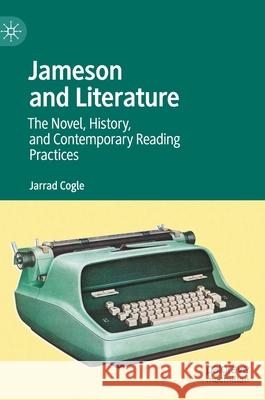Jameson and Literature: The Novel, History, and Contemporary Reading Practices » książka
topmenu
Jameson and Literature: The Novel, History, and Contemporary Reading Practices
ISBN-13: 9783030548230 / Angielski / Twarda / 2020 / 176 str.
Kategorie:
Kategorie BISAC:
Wydawca:
Palgrave MacMillan
Język:
Angielski
ISBN-13:
9783030548230
Rok wydania:
2020
Wydanie:
2020
Ilość stron:
176
Waga:
0.37 kg
Wymiary:
21.01 x 14.81 x 1.27
Oprawa:
Twarda
Wolumenów:
01
Dodatkowe informacje:
Wydanie ilustrowane











